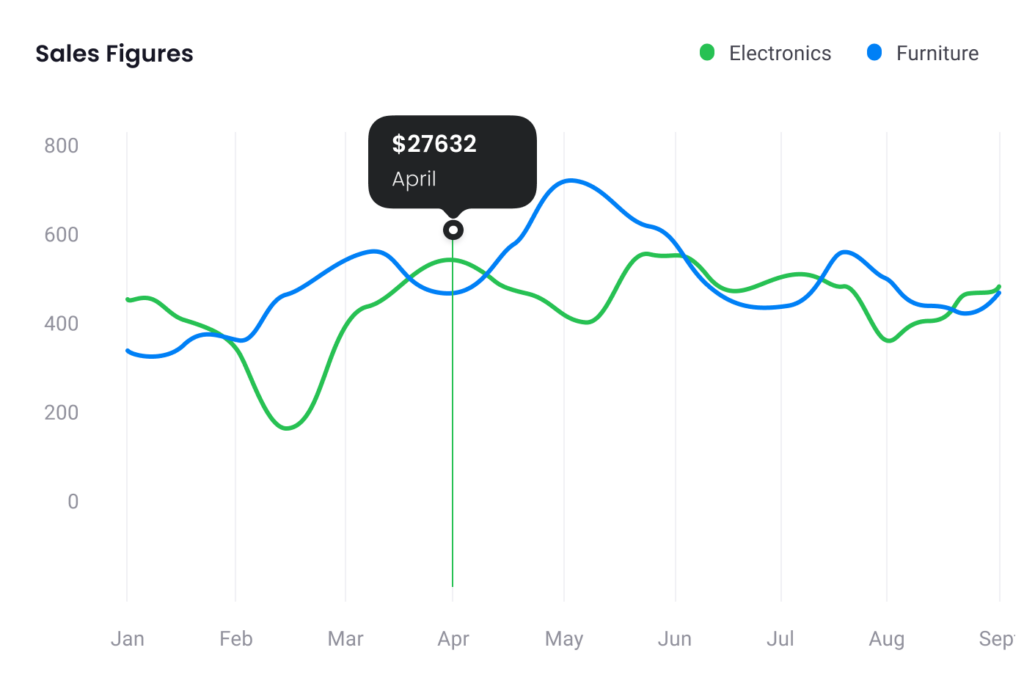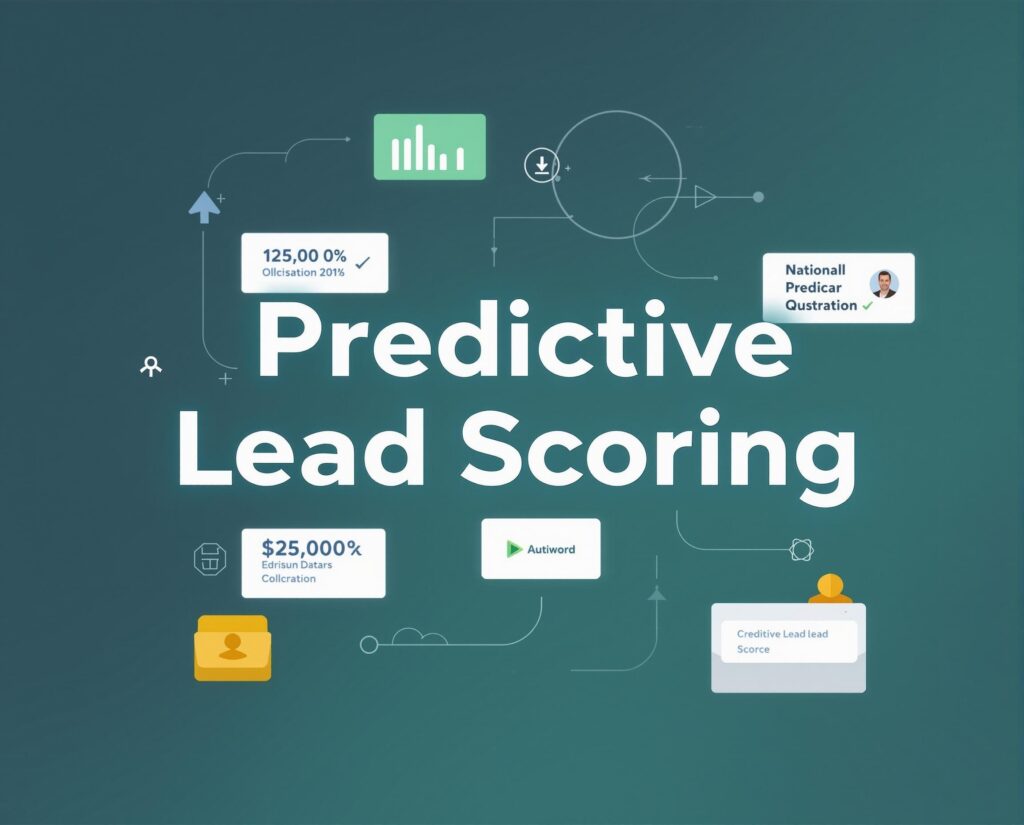The AI Advantage: Why Solopreneurs and Small Businesses Can’t Afford to Wait
In today’s dynamic business environment, characterized by rapid technological advancements and evolving consumer expectations, agility and efficiency are paramount, especially for those operating solo or within small teams. The ability to adapt quickly, optimize resources, and reach target audiences effectively often determines success or stagnation. Artificial intelligence (AI) is no longer a concept confined to the realms of science fiction or the exclusive domain of large corporations; it has firmly established itself as a present-day necessity for businesses of all sizes striving to maintain a competitive edge.1 Many solopreneurs and small business owners, while demonstrating resilience and passion, are inadvertently missing out on substantial opportunities for growth, streamlined operations, and enhanced profitability by not yet integrating AI tools into their workflows.3
The urgency to embrace AI stems from the remarkable pace at which these technologies are advancing, making them increasingly accessible, user-friendly, and powerful for even the most resource-constrained businesses.3 The sophistication of AI agents and the decreasing costs of cloud computing have ushered in an era where individual entrepreneurs can leverage tools that once required entire departments.3 Delaying the adoption of AI could lead to a significant disadvantage, as competitors who are already exploring and implementing these technologies are likely to experience enhanced productivity, reduced costs, and ultimately, greater market share.5 The initial reluctance observed among some business owners to invest in AI assistance suggests a critical need to clearly articulate the tangible benefits in a manner that directly addresses their concerns and priorities. This involves demonstrating practical outcomes such as significant time savings on routine tasks, substantial reductions in operational costs, and demonstrable growth in revenue and lead generation.5
The AI Revolution is Here: Current Applications for Solopreneurs and Small Businesses
A significant misconception persists that AI is an exclusive tool reserved for large corporations with extensive financial and technological resources.1 However, the reality is that a multitude of AI-powered tools are now readily available and increasingly affordable, specifically designed to cater to the needs and budgets of smaller companies.1 These tools offer a broad spectrum of capabilities that can handle numerous tasks essential for entrepreneurs, effectively multiplying their capacity and allowing them to operate with unprecedented efficiency.3
One of the most impactful applications of AI for solopreneurs and small businesses lies in content creation.8 AI can assist in generating compelling marketing copy for advertisements and websites, crafting engaging blog posts that can drive organic traffic, and producing consistent social media content to maintain audience engagement.8 Tools like ChatGPT and Copy.ai can quickly draft various forms of written content based on simple prompts, saving countless hours typically spent on brainstorming and writing.8 Furthermore, AI can aid in optimizing existing content for search engines, ensuring better visibility and reach.8

Marketing automation is another crucial area where AI provides significant advantages.3 AI tools can manage entire marketing campaigns, segmenting target audiences based on various criteria and personalizing outreach efforts to maximize impact.3 This includes automating email marketing sequences and social media posting schedules, ensuring consistent communication with potential and existing customers.8 AI can also analyze marketing data to identify trends and optimize strategies for better results.8
In the realm of customer service, AI-powered chatbots have become invaluable assets.1 These chatbots can provide 24/7 support to customers, answering frequently asked questions instantly, guiding them through processes, and routing complex inquiries to human agents when necessary.1 This not only enhances customer satisfaction by providing immediate assistance but also frees up the entrepreneur’s time to focus on other critical aspects of the business.1
Sales and lead generation are also being transformed by AI.3 AI tools can identify potential leads by analyzing vast amounts of data and recognizing patterns indicative of customer interest.5 They can also nurture prospects through personalized communication and analyze customer behavior to predict future purchasing patterns, allowing for more targeted sales efforts.3 Platforms like Apollo and Clay utilize AI to find high-quality leads and automate personalized outreach.11
For operations and productivity, AI offers numerous solutions.1 Tasks such as data entry, scheduling appointments, managing project timelines, and even performing basic financial analysis can be automated or assisted by AI.1 Tools like Reclaim.ai can optimize schedules and automate time blocking for focused work.11 AI can also help with financial analysis and forecasting using machine learning models, providing valuable insights for decision-making.3
Even the initial stages of establishing an online presence can benefit from AI through website development.8 Many popular website builders now incorporate AI features to help users create custom, professional websites with ease, often at a fraction of the cost of hiring a web developer.8 ChatGPT can even act as a personal assistant in this process, helping to decide on necessary website elements, their organization, and the content to include.8
Finally, competitor analysis, a crucial aspect of strategic planning, can be significantly enhanced by AI.8 AI models can help identify competitors, analyze their products and services, discover customer complaints to identify market gaps, and compare pricing, providing valuable insights for developing a competitive business strategy.8
The sheer variety of these applications underscores the profound impact AI can have on nearly every facet of a solopreneur’s or small business owner’s daily operations. This presents a remarkable opportunity to offload tasks that are not only time-consuming but may also require specialized skills that the owner may not possess. Furthermore, the increasing availability of affordable and even free AI tools means that leveraging this technology does not necessitate a substantial financial outlay, making it accessible to businesses operating on tight budgets.7 Popular and user-friendly options like ChatGPT, Google Workspace with Gemini, Canva, Grammarly, and HubSpot offer various AI-powered features that can be integrated into existing workflows with minimal disruption.8

Time is Money: How AI Automates Tasks and Boosts Efficiency
For solopreneurs and small business owners, time is an exceptionally precious and often limited resource. AI offers a powerful solution by automating a wide array of repetitive and time-consuming tasks, thereby freeing up valuable hours that can be redirected towards more strategic and growth-oriented activities.1
Consider the realm of marketing. AI can automate the entire process of email marketing campaigns and follow-ups, from drafting personalized email content to scheduling their delivery based on optimal engagement times.12 Similarly, scheduling social media posts and managing engagement across various platforms can be effortlessly handled by AI tools, ensuring a consistent online presence without requiring constant manual input.9
Handling customer inquiries through AI chatbots provides another significant efficiency boost.1 These AI-powered assistants can answer frequently asked questions instantly, resolve common issues, and provide round-the-clock support, reducing the burden on the business owner and improving customer satisfaction.1
Administrative tasks that often consume a significant portion of a solopreneur’s day can also be automated. AI can streamline data entry and report generation, accurately and quickly processing information and creating insightful reports without manual effort.1 Managing calendars and scheduling appointments, a constant back-and-forth process, can be automated with AI tools that integrate with online calendars and communicate with clients to find mutually convenient times.1
In the critical area of sales, AI can automate lead scoring and qualification, analyzing various data points to identify the most promising prospects and allowing the business owner to focus their efforts on those with the highest likelihood of conversion.12
Studies have shown the remarkable potential for time savings through AI adoption. A Small Business Entrepreneurship Council (SBEC) survey revealed that small business owners using AI tools saved an average of 13 hours per week.5 This substantial amount of freed-up time represents a significant opportunity to reinvest in activities that directly contribute to business growth, such as developing new products or services, building stronger relationships with customers, and exploring new market opportunities.3 The shift from performing manual, repetitive tasks to engaging in higher-value, strategic work is a key transformation enabled by AI, allowing solopreneurs and small business owners to focus on their core competencies and passions, ultimately driving long-term success.3
Table 1: AI Tools for Task Automation and Estimated Time Savings
Tool Name | Task Automated | Estimated Time Savings per Week |
Hootsuite | Social Media Scheduling & Engagement | 2-4 hours |
Mailchimp/HubSpot | Email Marketing Campaigns & Follow-ups | 3-5 hours |
Tidio/Intercom | Customer Support Chatbots | 5-10 hours |
Zapier | Automating Data Entry & Inter-app Workflows | 2-5 hours |
Calendly/Reclaim.ai | Calendar Management & Appointment Scheduling | 1-3 hours |
Lindy AI | Lead Scoring & Personalized Outreach | 4-8 hours |
Note: These are estimated ranges and actual time savings may vary depending on the specific business and usage patterns.
Smart Savings: Leveraging AI to Reduce Operational Costs
Beyond the significant time savings, AI offers a multitude of avenues for solopreneurs and small business owners to substantially reduce their operational costs.1
One of the most direct ways AI contributes to cost reduction is through the automation of repetitive tasks, leading to lower labor costs.32 By automating tasks like data entry, invoice processing, and basic customer inquiries, businesses can reduce their reliance on manual labor, especially for routine activities.32 Optimizing marketing spend is another key area where AI proves invaluable.5 AI-powered tools can analyze vast amounts of data to identify the most effective target audiences for marketing campaigns, ensuring that advertising efforts are focused on those most likely to convert, thereby maximizing return on investment and minimizing wasted expenditure.5
Efficient inventory management is crucial for small businesses, and AI offers solutions to avoid both the costs associated with overstocking (storage, potential spoilage) and stockouts (lost sales, customer dissatisfaction).9 AI algorithms can analyze historical sales data, predict future demand, and optimize stock levels, ensuring that the right amount of inventory is available at the right time.32
Enhancing customer service efficiency with chatbots can also lead to significant cost savings by reducing the need for large human support teams.1 Chatbots can handle a large volume of customer inquiries simultaneously, 24/7, at a fraction of the cost of hiring and training human agents.33 AI can also streamline various administrative tasks, such as generating and sending invoices, processing receipts, and managing data, reducing the time and potential errors associated with manual handling.1 Furthermore, AI systems, with their ability to learn and adapt, can significantly reduce the likelihood of errors in tasks like accounting and data management, which can be costly to rectify.10 AI can even contribute to optimizing energy consumption in physical workspaces and other operational processes by analyzing data patterns and suggesting adjustments, leading to lower utility costs.35
A significant advantage for solopreneurs and small businesses is the cost-effectiveness of many AI tools, with numerous free or low-cost options available.7 Many platforms offer free tiers with basic functionalities, allowing business owners to test the waters and experience the benefits of AI without any initial financial commitment.7 As the business grows and needs evolve, affordable subscription plans are available to unlock more advanced features and capabilities.7 It is crucial to view the investment in AI tools not merely as an expense but as a strategic move that yields a significant return on investment (ROI) through increased efficiency, reduced costs, and enhanced revenue generation.3
Table 2: AI Applications and Potential Cost Savings for Small Businesses
AI Application | Area of Cost Reduction | Estimated Percentage/Amount of Cost Savings |
AI Chatbots | Customer Support Labor | 30-40% 33 |
Marketing Automation | Marketing Expenses | Up to 50% 37 |
Inventory Management Software | Inventory Waste & Storage Costs | 20-30% 33, 25% 33 |
Document Processing AI | Administrative Labor | Up to 80% reduction in processing time 33 |
Predictive Maintenance | Equipment Repair & Downtime | Up to 40% 33 |

Fueling Growth: Generating New Business and Leads with AI
Beyond optimizing operations and reducing costs, AI plays a pivotal role in directly contributing to the growth of solopreneurs and small businesses by enhancing their ability to generate new business and attract valuable leads.3
AI empowers businesses to achieve improved audience targeting and personalization in their marketing campaigns.5 By analyzing vast amounts of data on customer demographics, behavior, and preferences, AI algorithms can help identify the ideal target audience for specific products or services, ensuring that marketing messages are delivered to those most likely to be interested.5 This level of personalization leads to higher engagement rates, improved conversion rates, and ultimately, more effective customer acquisition.5
Furthermore, AI can analyze market trends and customer behavior on a scale that would be impossible for humans alone, enabling businesses to identify emerging trends, unmet customer needs, and potential new market opportunities.3 This data-driven approach allows solopreneurs and small businesses to make informed decisions about product development, service offerings, and overall business strategy, positioning them for growth in evolving markets.36
AI is also instrumental in automating lead generation processes through various AI-powered tools.12 These tools can identify potential leads from various sources, qualify them based on predefined criteria, and even automate initial outreach efforts, freeing up the business owner’s time to focus on nurturing and converting the most promising prospects.25 AI-powered copywriting tools can even assist in writing personalized sales emails more quickly, enhancing outreach effectiveness.39

Enhancing customer engagement and building stronger relationships is another area where AI makes a significant contribution.3 By providing personalized recommendations, anticipating customer needs, and offering instant support through chatbots, AI helps create more positive and meaningful interactions, fostering customer loyalty and encouraging repeat business.28
AI-driven content creation and analysis can significantly improve a business’s SEO and online visibility.1 AI tools can assist in generating SEO-friendly content, identifying relevant keywords, and analyzing website performance, ensuring that the business ranks higher in search engine results and attracts more organic traffic.1
Finally, AI can analyze customer behavior and purchase history to provide personalized product recommendations, a powerful tactic for increasing sales and average order value in e-commerce and other businesses.2 By suggesting products that are highly relevant to individual customers, businesses can enhance the shopping experience and drive revenue growth.28 Several AI tools are specifically designed for lead generation, offering features like AI-driven prospecting, multi-channel engagement, and intelligent follow-ups.38
Real Results: Case Studies of Revenue Growth Through AI Adoption
The transformative potential of AI for solopreneurs and small businesses is not merely theoretical; numerous real-world examples demonstrate its effectiveness in driving significant revenue growth.2
Consider Agency Pure, an advertising agency that used rasa.io, an AI-powered email marketing platform, to create highly customized email newsletters. By analyzing email marketing data, the platform tailored content to individual recipients, resulting in immediate growth in email open and click rates.50 ad-flex communications, another marketing agency, leveraged Pattern89’s AI to optimize their Facebook and Instagram advertising campaigns. The AI-assisted campaign significantly outperformed the unassisted one, achieving 81% lower costs per result and a remarkable 439% higher conversion rate.50
A small boutique clothing store utilized Shopventory, an AI-driven inventory management platform, to optimize stock orders and maintain ideal inventory levels, ensuring they had the right products in stock to meet customer demand, thereby maximizing sales and minimizing losses from overstocking or stockouts.48 A local bakery employed Mailchimp’s AI features to segment its customer base, personalize email content, and optimize send times, leading to more effective marketing campaigns and a better return on investment.48
A small e-commerce store implemented an AI-powered customer support chatbot using ChatGPT’s API. This significantly reduced response times and increased customer satisfaction, leading to improved customer retention and potentially higher sales.48 Nakie, an online retailer, used AI to track stock levels and analyze customer reviews, allowing them to optimize their operations and respond to customer feedback effectively, ultimately leading to repeat purchases.47 CMY Cubes, an e-commerce business, created a custom AI model to generate SEO-friendly blog posts and analyze marketing performance data, freeing up time for sales and improving their marketing ROI.47
These case studies, spanning various industries and business sizes, provide compelling evidence of the tangible revenue growth that can be achieved through the strategic adoption of AI tools. The use of specific AI platforms like rasa.io, Pattern89, Shopventory, Mailchimp, ChatGPT, and others in these success stories offers practical insights for other businesses looking to replicate these positive outcomes.43
Addressing the Hesitation: Why Some Businesses Are Reluctant and How to Overcome It
Despite the compelling benefits, many solopreneurs and small business owners hesitate to invest in AI.2 Understanding the underlying reasons for this reluctance is crucial to addressing these concerns and fostering greater adoption.
One primary concern is the perceived high costs and resource requirements associated with AI implementation.1 Many believe that AI is an expensive technology requiring significant upfront investment and ongoing maintenance. Another significant barrier is the lack of understanding and expertise about AI and how it can be effectively applied to their specific business needs.2 The technical jargon and perceived complexity can be intimidating for those without a strong technological background.57
Fear of job displacement and potential internal resistance from employees also contribute to the hesitation.54 Business owners with small, close-knit teams may be wary of introducing technologies that could be perceived as a threat to their employees’ livelihoods.57 Concerns about data privacy, security, and ethical implications are also valid reasons for caution, especially given the increasing regulations around data handling and the potential for bias in AI algorithms.9
Some business owners may have an overestimation of AI capabilities and harbor unrealistic expectations, leading to disappointment if initial projects fail to deliver immediate, transformative results.54 The complexity of AI implementation and integration with existing legacy systems can also be a significant deterrent, particularly for businesses with limited technical infrastructure.1 Furthermore, uncertainty about the return on investment (ROI) and the long timeframe sometimes associated with AI projects can make smaller businesses, focused on short-term gains, hesitant to commit.3 Finally, the mistrust in AI decision-making, often referred to as the “black box” nature of algorithms, can create a feeling of risk and lack of control.54
To overcome these hesitations, solopreneurs and small business owners can adopt several strategies.7 Starting with small, targeted AI pilot projects allows businesses to test the technology and experience its benefits in a low-risk environment before making a significant investment.7 Leveraging free and low-cost AI tools readily available can minimize the initial financial outlay and make AI adoption more accessible.7 Focusing on user-friendly AI platforms that require minimal technical expertise and offer intuitive interfaces can also lower the barrier to entry.10
It’s important to emphasize that AI is intended to augment human capabilities, not to replace them entirely.3 By framing AI as a supportive tool, business owners can alleviate fears of job displacement and highlight its potential to free up employees for more creative and strategic tasks.57 Implementing human oversight and quality control for AI-generated content and decisions is crucial to ensure accuracy and maintain the human touch in customer interactions.3 Educating themselves and their teams about the benefits and limitations of AI can foster a better understanding and reduce skepticism.10 Finally, prioritizing data security and privacy when selecting and using AI tools is paramount to protect sensitive information and maintain customer trust.9
The Future is Intelligent: The Potential Impact of AI on Solo Ventures and Small Businesses

Looking ahead, the potential impact of AI on the operations and growth of solo ventures and small businesses is immense and continues to evolve rapidly.3 Experts predict the emergence of more sophisticated and integrated AI agents capable of handling complex, interconnected tasks across multiple domains, acting almost as virtual team members for solopreneurs.3
The concept of AI-powered “one-person unicorns”, billion-dollar companies run by a single individual leveraging the power of AI, is no longer a distant fantasy but an increasingly plausible reality.3 This shift signifies a fundamental change in the landscape of entrepreneurship, where traditional barriers of needing large teams and substantial funding are being challenged by the efficiency and scalability offered by AI.4 AI has the potential to level the playing field between small and large businesses, providing smaller entities with access to powerful tools and capabilities that were previously only available to larger corporations.2
Business models themselves are expected to evolve, shaped by the increasing capabilities of AI and the demands of the market.3 Hybrid approaches may emerge, where solopreneurs leverage AI for most operational tasks while maintaining strategic partnerships with human experts for specific functions requiring uniquely human skills.3 In this increasingly automated world, human skills like creativity, ethical decision-making, and the ability to build meaningful relationships will become even more critical, as AI handles the more routine and analytical tasks.3 AI will also continue to drive hyper-personalization in customer experiences, transforming how businesses interact with and serve their clients.2 The convergence of AI with no-code platforms will further democratize access to this technology, allowing individuals without coding expertise to build and implement sophisticated AI solutions for their businesses.4 Experts predict significant growth in the AI market, with projections indicating substantial contributions to global GDP in the coming years.52

Conclusion: Embracing the AI-Powered Future of Small Business
The evidence is clear: artificial intelligence is no longer a futuristic novelty but a crucial tool for solopreneurs and small business owners seeking to thrive in today’s competitive landscape. From automating mundane tasks and reducing operational costs to generating new business and enhancing customer engagement, the benefits of AI adoption are substantial and rapidly becoming indispensable. The initial hesitations surrounding cost, complexity, and the fear of the unknown are being addressed by the increasing availability of affordable, user-friendly tools and a growing understanding of AI’s potential to augment human capabilities rather than replace them.
The future of small business is inextricably linked with the intelligent integration of AI. Those who embrace this technological revolution now will be best positioned to capitalize on the opportunities it presents, achieving greater efficiency, driving sustainable growth, and ultimately securing a competitive advantage in the years to come. The time to start experimenting with AI tools is not tomorrow, but today. By taking small, informed steps, solopreneurs and small business owners can unlock the transformative power of AI and build a more resilient, profitable, and future-proof business.
Sources Used For This Post
thryv.com22 Free AI Tools For Small Business Owners – Thryv Opens in a new window sba.govAI for small business | U.S. Small Business Administration Opens in a new window justthink.aiAI Agents: The Solopreneur’s Secret Weapon – Just Think AI Opens in a new window mailmodo.com17 AI Tools for Small Businesses to Become More Productive Opens in a new window investopedia.comHow Small Businesses Can Use AI Tools – Investopedia Opens in a new window innotechtoday.comAI-Powered Business: Solopreneurs Launch on a Small Budget Opens in a new window workspace.google.comAI for Small Business | Google Workspace Opens in a new window bipartisanpolicy.org3 Ways AI is Transforming Small Businesses | Bipartisan Policy Center Opens in a new window getcoai.comAI is powering the rise of billion-dollar solopreneurs – CO/AI Opens in a new window british-business-bank.co.ukAI trends – how AI can help small businesses | British Business Bank Opens in a new window blog.hubspot.comThe 19 Best AI Tools for Small Businesses and How to Use Them – HubSpot Blog Opens in a new window aibusinessasia.com8 Best AI Tools for Solopreneurs to Automate & Scale in 2025 – AI … Opens in a new window zebracat.aiBest AI Tools for Solopreneurs in 2024 – Zebracat AI Opens in a new window lindy.ai9 AI Automation Examples Improving Sales and Business in 2025 … Opens in a new window godofprompt.ai18 Best AI Tools for Solopreneurs – God of Prompt Opens in a new window business.fiu.eduThe Competitive Advantage of Using AI in Business Opens in a new window blog.iil.comHow AI is Transforming Small Businesses – The IIL Blog Opens in a new window behindthedesignco.comAI-Powered Solopreneur: How to Automate Without Losing the Human Touch Opens in a new window workdone.ai137 Business Process Automation Examples + Limitless Ideas [2025] – WorkDone.AI Opens in a new window coursera.orgAI for Small Business—Transforming Operations and Driving Growth … Opens in a new window broadly.comTop AI Tools for Small Business – Broadly Opens in a new window connectedcouncil.orgHow AI is Transforming Small Businesses – Empowering Growth, Efficiency, and Innovation Opens in a new window salesforce.comHow to Automate Your Small Business (AI Tips and Tools) – Salesforce Opens in a new window biztechcs.com6 Ways AI Can Help Your Cost-Reduction Strategy – BiztechCS Opens in a new window ttms.comHow Does AI Reduce Costs: Unlock Savings in Your Company Now … Opens in a new window addepto.comHow Does AI Reduce Costs? Discover AI Cost Efficiency Strategies – Addepto Opens in a new window medium.comWork Smarter, Not Harder: AI Tools for Solopreneurs. | by Otim Fredrick – Medium Opens in a new window codiste.com5 Strategies To Cut Costs In Your Business Using AI Agents | Blog Opens in a new window charcap.comAI Costs for Small Businesses: Can You Afford It? – Invoice Factoring Company Opens in a new window wolterskluwer.comHow small businesses can use AI – Wolters Kluwer Opens in a new window bart-solutions.comHow to overcome most common barriers in AI implementation for SMBs – bART Solutions Opens in a new window naviant.comAI Adoption Challenges: 9 Barriers to AI Success & Their Solutions – Naviant Opens in a new window royex.aeWhy Are Businesses Hesitant About AI? Debunking Myths and … Opens in a new window nibusinessinfo.co.ukRisks and limitations of artificial intelligence in business | nibusinessinfo.co.uk Opens in a new window boston25news.comNot everyone is keen on artificial intelligence. Here’s why some … Opens in a new window researchgate.netBarriers to the implementation of artificial intelligence in small and medium sized enterprises: Pilot study – ResearchGate Opens in a new window forbes.com11 Challenges Of Adopting AI In Business (And How To Address Them Head-On) – Forbes Opens in a new window medium.comSMEs struggle to implement AI — Here’s why | Medium Opens in a new window orionpolicy.orgEmpowering Small Businesses: The Impact of AI on Leveling the Playing Field Opens in a new window thegreatentrepreneurs.comNavigating AI Adoption: Benefits and Challenges for Businesses – Great Entrepreneurs Opens in a new window 1stformations.co.uk5 Reasons Why Small Businesses Are Reluctant to Use AI – 1st Formations Opens in a new window thebeckagefirm.comWhy Some Businesses Hesitate to Adopt AI and How to Overcome It | The Beckage Firm Opens in a new window momen.appHow Solopreneurs Can Launch Their AI Business in 2025 – Momen Opens in a new window medium.comAI statistics: market, adoption, business impact, investments, and more | by Aristek Systems Opens in a new window slarkconsultinggroup.comThe Rise of the $1M Solopreneur: How to Thrive in Today’s Business Landscape Opens in a new window abiteqai.comAI Small Business Case Studies – Abiteq AI Opens in a new window marketingaiinstitute.com3 Case Studies of SMBs Using AI for Marketing – Marketing AI Institute Opens in a new window 3blmedia.comHow AI Is Amplifying Small Business Impact on Local Economies – 3BL Media Opens in a new window callrail.com10 Use Cases of AI for Small Business Marketing – CallRail Opens in a new window salesforce.comNew Research Reveals SMBs with AI Adoption See Stronger Revenue Growth – Salesforce Opens in a new window insidesmallbusiness.com.auCase studies: how SMEs are using AI to compete with big players – Inside Small Business Opens in a new window blog.alexanderfyoung.com7 AI SaaS Ideas You Can Build As A Solo Founder – Alexander Young Opens in a new window aitglobalinc.com16 AI Tools for Small Businesses: Smart Solutions for Growth – AIT Global Inc. Opens in a new window sbdctampabay.comTop AI Tools for Small Business Owners – SBDC Tampa Bay Opens in a new window voiceflow.comThe No.1 AI Business Idea for Entrepreneurs [No Code] – Voiceflow Opens in a new window rippling.comBest AI Tools for Small Businesses to Automate Workflows – Rippling Opens in a new window zapier.comThe best AI productivity tools in 2025 – Zapier Opens in a new window goviceversa.com16 best free AI tools for founders and digital businesses – Viceversa Opens in a new window medium.comThe Future of Building. AI, Solo Founders, and What Comes Next… | by Dan Khan – Medium Opens in a new window m13.co25 Tech and Venture Predictions for 2025 | M13 Opens in a new window gsdvs.comSolo Billion-Dollar Ventures: Sam Altman’s AI-Powered Prediction Opens in a new window latintimes.comRise Of Solopreneurs: How AI Could Build A New Breed Of One-Person-Company Billionaires – Latin Times Opens in a new window glorikian.comThe Solo Billionaire: Unveiling the AI-Driven Future of Solo Entrepreneurship Opens in a new window kenaninstitute.unc.eduArtificial Intelligence for Small Business Development: Are You Ready?







